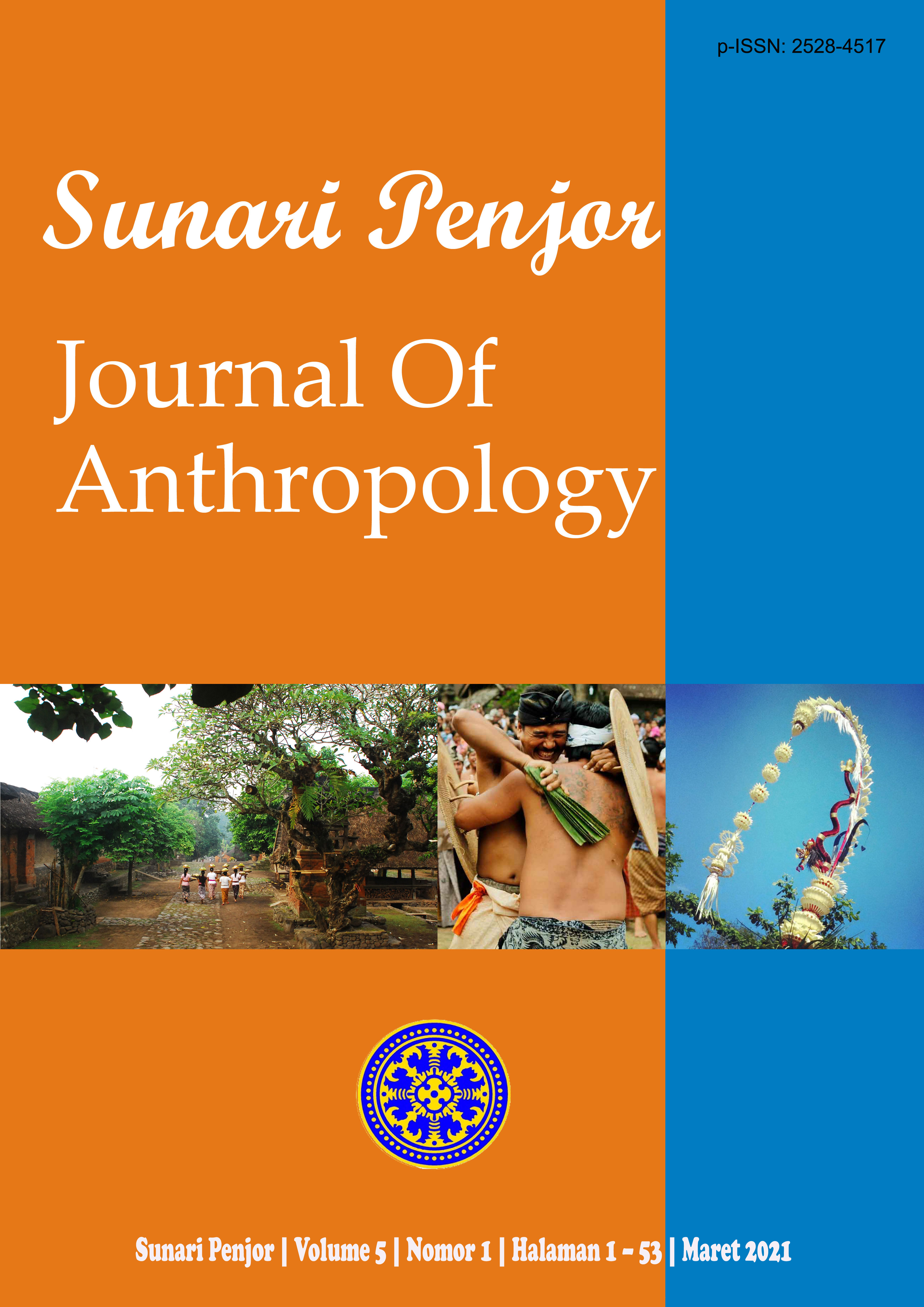Partisipasi dalam Sharing Economy Melalui Pendekatan Komunikasi
Abstract
In the mid 20th century, tourism has been reached by technology, especially with the internet network. One of the changes that is the result of technology evolution is the developing model of production and consumption of goods and services, called the sharing economy. One of the successful example of sharing economy technology that is currently popular with tourists is Airbnb. The specific objective of this research is to understand and describe thoroughly the sharing economy and its implications for cross-cultural communication of hosts and guests in in North Kuta District. Rhenald Kasali, Professor of FE UI said that "Sharing the economy is an attitude of participation in economic activities that creates value, independence and prosperity". Deddy Maulana (in Darmastuti, 2013: 3) states that in a matter of communication, harmony is the meaning of conversation. According to E.B Taylor, what is called culture is a form of method used to survive that is owned by certain individuals / groups and then passed on from generation to generation. The research method used in this research is a qualitative research. The role of the host in giving an impression of local life is very important in order to create a good impression on the eyes of guests. Interact and communicate with locals who help these guests at being able to see things from different point of view. With the role of the host in introducing local life to the guests, it will lead to an understanding in which generally everyone has different views about the world and culture in each community. When hosts and guests communicate, the other party hears different opinions, this, then, builds mutual respect, respect and compromise. For foreign guests, the cross-cultural communication created Broadens insight and understanding of political, religion and social status issues that affect the lives of local residents.
Downloads
References
Astuti, P.S. (2015). “Pelaksanaan IBM Canang Sari sebagai Sarana Ritual Hindu di Denpasar”. GaneÇ Swara, Vol. 9, No. 1, hlm 135-139
Belk, R. (2014). “You are what you can access: Sharing and collaborative consumption online”, Journal of business research. Volume 67, nomor 8, hlm. 1595-1600.
Bhaskara, G. I. (2018). “Airbnb di Bali: Identifikasi Ulasan Online wisatawan Asing Melalui Metode Netnography”. Jurnal Master Pariwisata (JUMPA), hlm. 27-56.
Bleustein, C., David, B. R., Andrew, V., Laura, & S., Raleigh, J. (2014) Wait Times, Patient Satisfaction Scores, and the Perception of Care. The American Journal of Managed Care. 2014;20(5):393-400.
Hennig, T., Gwinner, K. P., Walsh, G., & Gremler, D. D. (2004). Electronic word-of-mouth via consumer-opinion platforms: What motivates consumers to articulate themselves on the Internet?, Journal of Interactive Marketing, 18 (1), 38–52
Heo, Y. (2016). “Sharing economy and prospects in tourism research”. Annals of Tourism Research. Volume 58, hlm. 166-170.
Hutabarat, J. (2020). Visi Kualitas Jasa: “Membahagiakan Pelanggan”, Kunci Sukses Bisnis Jasa. Jurnal Manajemen & Usahawan Indonesia. Vol. 26, No. 5.
Kinanti, A., Luh, I. G. A., & Made, K. S. (2016). “Perbedaan Strategi Koping Pada Perempuan Hindu Bali yang bekerja dan yang Tidak Bekerja” dalam Jurnal Psikologi Udayana Vol. 3 No. 3, 499-508, 2016
Kertamuda, Herdiansyah, F., & Haris. (2009). Pengaruh Strategi Coping Terhadap Penyesuaian Diri Mahasiswa Baru dalam JurnalUniversitas Paramadina Vol. 6 No. 1, 2009
Martin, C. J., Upham, P., & Budd, L. (2015). “Commercial orientation in grassroots sosial innovation: Insights from the sharing economy”, Journal Ecological Economics. Volume 118, hlm. 240-251.
Matsumoto, D. (1996). Culture and Psychology, California: Brooks/Cole Publishing.
Meleo, L., Romolini, A., & De Marco, M. (2016). The Sharing Economy Revolution And Peer-To-Peer Online Platforms. The Case Of Airbnb. In International Conference on Exploring Services Science (pp. 561-570). Springer International Publishing.
Maslow Abraham H., (1984). Motivatio and Personality (Teori Motivasi dengan (Motivasi dan Kepribadian). Yogyakarta: Cantrik Pustaka, cet: 1
Nadia, R. U., Gary, A. A., Marc, N. E., Charlotte, A. M. P., Georgios, L., John L. C., & Martin, R. (2013). Relationship Between Clinical Quality and Patient Experience: Analysis of Data From the English Quality and Outcomes Framework and The National GP Patient Survey. Journal Annals of Family Medicine, www.annfammed.org. Vol 11, No 5. September/October 2013.
Parasuraman, A., Valerre, A., Zeithmal & Berry, L. (1988). Servqual: A Multiple Item Scale for Measuring Consumer Perseptions of Service Quality. Journal of Refailing. Vol. 64, Spring, pp. 12-40.
Purba, Christy Ulina. (2015). “Motivasi Kunjungan Wisatawan Taman Hutan Raya Sultan Syarif Hasyim Pekanbaru Riau”. Jurnal Online Mahasiswa Fakultas Ilmu Sosial dan Ilmu Politik. Volume 2, Nomor 1.
Vebrynda, R. (2012). Persepsi Antarbudaya sebagai inti Komunikasi Lintas Budaya (Studi Kasus mengenai Mahasiswa Indonesia di India). Universitas Padjajaran. Kalimantan Timur.
Wallace, P., Jeffrey, H. G., & Peter, N., (2007). Introduction to Psychology. Dubuque, IA: Wm. C. Brown.














